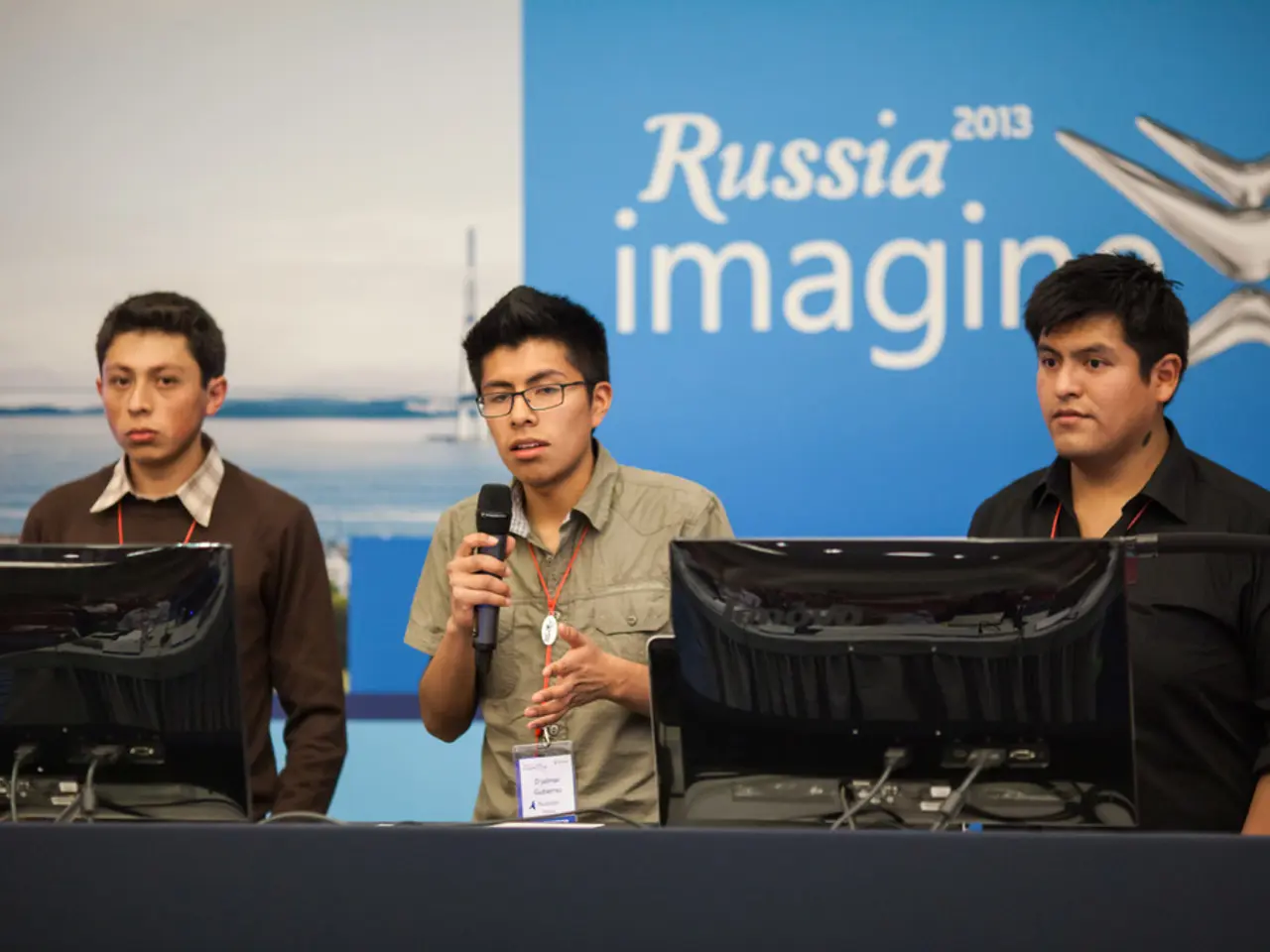Energy collaborations between the United States and Russia ignite fresh complexities amidst Ukraine's peace negotiations
In a significant development, US-Russia energy negotiations have taken a new turn, with key discussions revolving around potential energy deals that could reshape the global landscape.
One of the most notable points of contention is Exxon Mobil's potential re-entry into Russia's Sakhalin-1 project, a flagship oil and gas project in Russia's Far East with extensive recoverable reserves. After Exxon Mobil's exit in 2022 following the Ukraine invasion, the Kremlin seized its 30% stake in Sakhalin-1, causing a $4.6 billion impairment charge to the company. However, a new decree by President Putin in August 2025 allows Exxon and other foreign shareholders to re-enter Sakhalin-1, contingent on advocating for lifting Western sanctions and committing to project financing.
The prospect of Russia purchasing US equipment also represents a significant shift in the energy deals landscape. Discussions included US equipment sales for Russian LNG projects under sanctions, as well as the US exploring the acquisition of Russian nuclear-powered icebreaker vessels to support its domestic energy projects in Alaska.
Broader bilateral energy deals discussions involve top-level officials, including President Trump and Russian President Putin, held in Moscow and at the Alaska summit. These energy deals were used as leverage to promote peace talks between the two nations, with the aim of incentivizing the Kremlin to agree to peace and prompting US sanction relaxation.
The Arctic LNG 2 project, majority-owned by Novatek, faces US and allied sanctions that limit access to ice-class vessels and technology essential for its operation. The ongoing Ukrainian conflict has created complex barriers, with sanctions severely limiting Russian access to investment and technology. Yet, the Arctic LNG 2 project has resumed gas processing at reduced levels, with five LNG shipments loaded from the project in 2025.
These energy deals represent a complex balancing act amid global geopolitical pressure and economic interests. They underscore the intersection of energy security and international diplomacy in a changing global order through strategic energy deals mechanisms. The dialogue between US and Russian officials suggests Washington's willingness to sell LNG equipment to Russia, potentially facilitating Arctic LNG 2 operations and undermining the China-Russia alliance.
The ongoing discussions also signal a shift towards bilateral engagement between the US and Russia, subtly sidelining the European Union's collective stance on Russian energy sanctions. The energy deals, aimed to incentivize the Kremlin to agree to peace, are a testament to the intricate dance between diplomacy and economics on the global stage.
In August 2025, US and Russian officials discussed several potential energy deals to foster peace in Ukraine. These energy deals, while controversial, are a step towards a more collaborative future between these two nations, a future where energy security and diplomacy intertwine in a delicate dance of power and peace.







